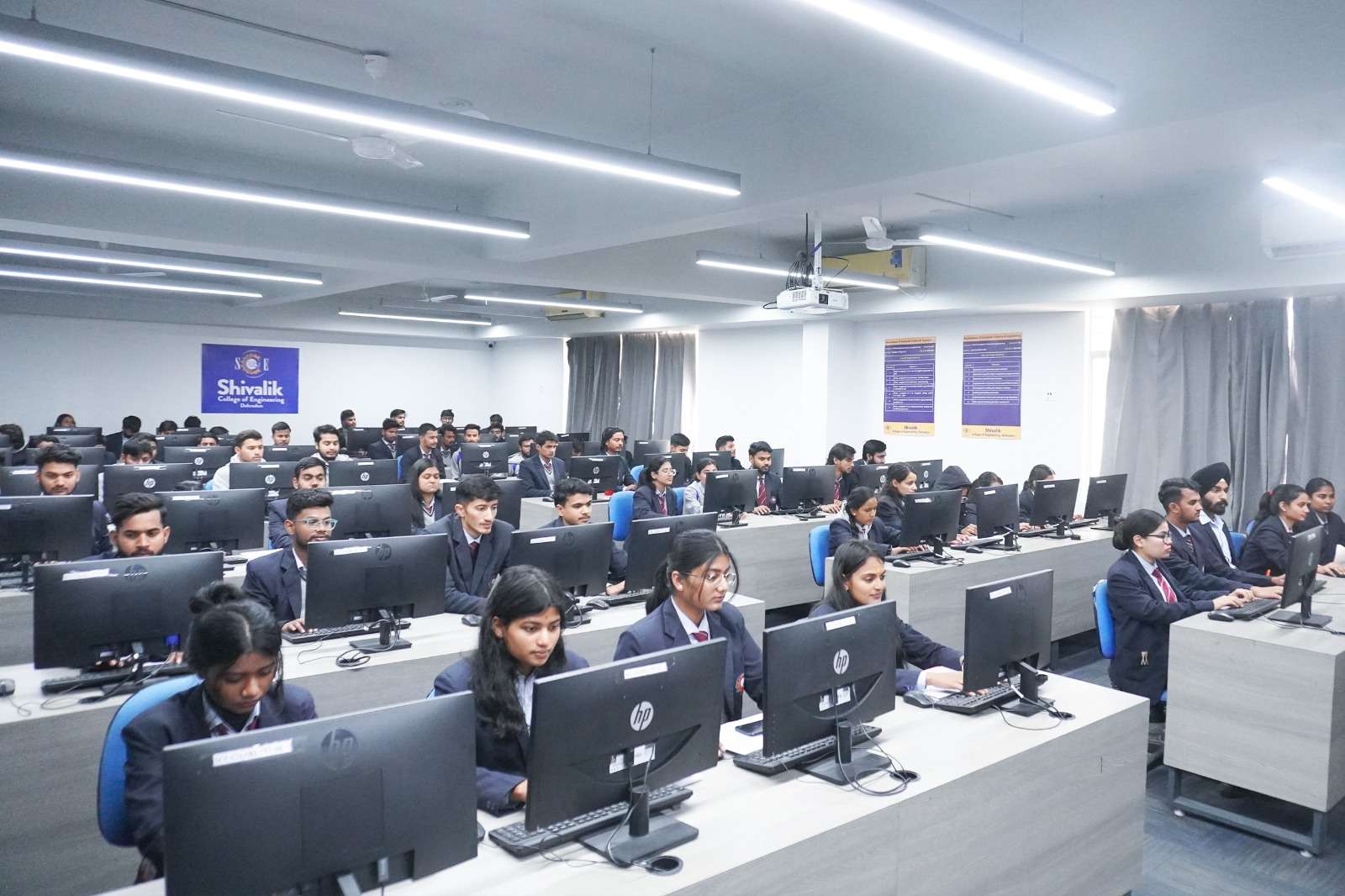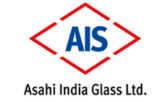Menu
Duration 4 years (8 semesters)
Eligibility Criteria 10+2 with minimum 70% Marks in Physics, Mathematics along with Chemistry/Biotechnology/Computer Science as one of the subjects.

B. Tech in Data Science is a four-year undergraduate program that focuses on using various scientific tools and approaches to extract meaningful data from a vast amount of data. The course is new and popular, and it provides students with the opportunity to master strategies and abilities such as data extraction, technique analysis, and so on.
Why take this Course?
Because this is a new and popular course with only a few universities offering it, B. Tech in Data Science graduates are in high demand. As a result, this training comes with a variety of benefits. The following are a few of them:
Why choose Us?
Our career-oriented courses and well-qualified faculty members round out the college’s distinguishing features. Moreover, the ever-updating syllabus at Shivalik College Dehradun is supported by world-class labs and expert hands-on industry experience.
Progressions & Career
Progression –
Here are the attractive opportunities available after B. Tech in Data Science:
Careers –
The graduate’s specialization in this field may aid them in pursuing jobs in both the public and private sectors, such as the following:
The Shivalik Advantage
Top Recruiters






Fee Structure 2025
FAQ's
Yes, a B.Tech. student can pursue data science after completing a BTech in Computer science. However, if you choose to pursue BTech CSE with Data Science, you will be done with your specialization in the same time it takes to complete a regular BTech in Computer Science.
Data science is still an upcoming field of study therefore several lucrative job options are available to its pursuers. The data architecture strategies or data models, for instance, are prepared by data architects. They design a data strategy in collaboration with IT industries and other enterprises. You might also choose financial modelling, which is analyzing an organization’s financial model and making recommendations for improvements.
Students are given a holistic learning experience and no stone is left unturned in ensuring their professional progress. The Shivalik Computation and Automation Society’s technical events, as well as the ‘Earn While You Learn’ – Internship Program, provide them with the necessary add-on skills and knowledge to face the problems of real life.
Curriculum
| BAST 101 BASP 101 | Engineering Chemistry |
| BAST 102 | Mathematics-I |
| BAST 103 BASP 103 | English for Communication |
| BEET 101 BEEP 101 | Basic Electrical & Electronics Engineering |
| BCST 101 BCSP 101 | Fundamentals of Computers & Programming in C |
| BMEP 101 | Manufacturing Practices / Workshop |
| BASP 102 | Internship-I (60 Hrs Duration) at the Institute level |
| BAST 104 BASP 104 | Engineering Physics |
| BAST 105 | Mathematics-II |
| BMET 102BMEP 102 | Basic Mechanical Engineering |
| BCET 101 BCEP 101 | Basic Civil Engineering & Mechanics |
| BMEP 103 | Engineering Graphics |
| BASP 106 | Language Lab & Seminars |
| BEST 101 | Environmental Studies |
| BCET-301 | Energy & Environmental Engineering |
| BCST-302 | Discrete Structure |
| BCST-303 BCSP-303 | Discrete Structure |
| BCET-304 BECP-304 | Data Structure |
| BEET-305 BEEP-305 | Object Oriented Programming & Methodology |
| BCSP-306 | Computer Workshop (Using Python) |
| BASP-107 | Evaluation of Internship-I completed at I year level /Seminar for Lateral Entry students |
| BAST 401 | Mathematics- III |
| BECT 402 BECP 402 | Database Management Systems |
| BECT 403 BECP 403 | Software Engineering |
| BEET 404 BEEP 404 | Computer Org. & Architecture |
| BEET 404 BEEP 404 | Theory of Automata and Formal Languages |
| BHUT 401 | Universal Human Values-2 |
| BCST 501 BCSP 501 | Operating System |
| BCST 502 BCSP 502 | Computer Networks |
| BCST-503 BCSP-503 | Design and Analysis of Algorithms |
| BCST-504 | Departmental Elective-I |
| BOCS-505 | Open Elective-I |
| BCST-506 | Virtual Lab (Unix/Linux/python/JAVA etc) |
| BCST-508 | Evaluation of Internship-II completed at II year level |
| BCST-601 BCSP-601 | Microprocessors and Applications |
| BCST-602 BCSP-602 | Compiler Design |
| BCST-603 BCSP-603 | Data Analytics |
| BCST-604 | Departmental Elective |
| BOCS-605 | Open Elective |
| BCSP-606 | Open Source Lab/Matlab Programming |
| BCSP-607 | Minor Project -I |
| BCST 701 BCSP 701 | .NET Framework and Programming |
| BCST-702 BCSP-702 | Ad hoc and Wireless Networks |
| BCST-703 | Departmental Elective |
| BCST-704 | Open Elective |
| BCSP-705 | Virtual Lab |
| BCSP-706 | Evaluation of Internship-III completed at III year level |
| BCSP-707 | Minor Project-II |
| BCST-801 BCSP-801 | Advanced Operating Systems |
| BCST-802 BCSP-802 | Cryptography & Network Security |
| BCST-803 | Departmental Elective |
| BOCS-804 | Open Elective |
| BCSP-805 | Major Project |
Program Specific Outcomes and Program Educational Objectives
Engineering knowledge: Apply the knowledge of mathematics, science, engineering fundamentals, and anengineering specialization to the solution of complex engineering problems
Problem analysis: Identify, formulate, review research literature, and analyze complex engineering problems reaching substantiated conclusions using first principles of mathematics, natural sciences, and engineering sciences
Design/development of solutions: Design solutions for complex engineering problems and design system components or processes that meet the specified needs with appropriate consideration for the public health and safety, and the cultural, societal, and environmental considerations.
Conduct investigations of complex problems: Use research-based knowledge and research methods including design of experiments, analysis and interpretation of data, and synthesis of the information to provide valid conclusions
Modern tool usage: Create, select, and apply appropriate techniques, resources, and modern engineering and IT tools including prediction and modeling to complex engineering activities with an understanding of the limitations
The engineer and society: Apply reasoning informed by the contextual knowledge to assess societal, health, safety, legal and cultural issues and the consequent responsibilities relevant to the professional engineering practice
Environment and sustainability: Understand the impact of the professional engineering solutions insocietal and environmental contexts, and demonstrate the knowledge of, and need for sustainable development
Ethics: Apply ethical principles and commit to professional ethics and responsibilities and norms of the engineering practice
Individual and team work: Function effectively as an individual, and as a member or leader in diverse teams, and in multidisciplinary settings
Communication: Communicate effectively on complex engineering activities with the engineering community and with society at large, such as, being able to comprehend and write effective reports and design documentation, make effective presentations, and give and receive clear instructions.
Project management and finance: Demonstrate knowledge and understanding of the engineering and management principles and apply these to one‘s own work, as a member and leader in a team, to manage projects and in multidisciplinary environments
Life-long learning: Recognize the need for, and have the preparation and ability to engage in independent and life-long learning in the broadest context of technological change.
Understand the application of computer science & engineering principles in information technology (IT) products and services industries.
Apply the knowledge of algorithmic techniques, programming languages and software applications to design, implement and support information systems
To groom the students for a bright and successful multidisciplinary career either in industry or academia both locally and globally with the aim that he/she becomes the preferred choice of the prospective employer.
To expose students to tools and techniques of Computer Science and Engineering so that they create innovative computing products.
To develop the ability among students to identify, conceptualize, design & develop, install and implement the appropriate solutions for real life problems in a rational manner.
To inculcate administrative & communication skills, human and ethical values among the students to develop team spirit for congenial work culture.
To generate among the students, a passion to pursue lifelong learning and up gradation to sustain their career with leadership qualities and a proactive approach.
Facilities
Vision & Mission
Vision of the Department
The Department of Computer Science and Engineering is committed to provide a center of excellence in upcoming technologies to keep on students as well as faculty with innovation ideas, equipped with requisite skills as per the latest industry standards and highly dynamic professionals having regard for ethics and human values so as to serve the society.
Mission of the Department